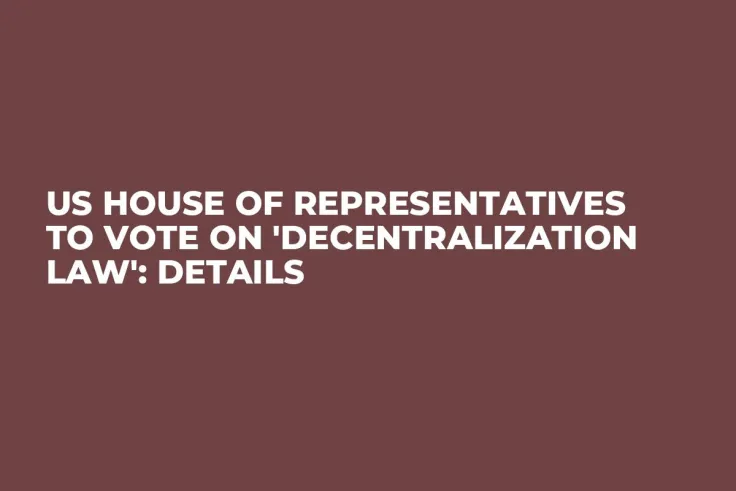
The long-awaited "decentralization bill" might be accepted by the end of this month. Its full title is the Financial Innovation and Technology for the 21st Century Act, and it might make cryptocurrency regulation much clearer and more understandable for us.
By the end of this month, the House of Representatives will vote on a major bill (HR 4763) — one that is crucial for the crypto industry. Known as the Financial Innovation and Technology for the 21st Century Act (FIT21), this bill could significantly clarify crypto regulations in the U.S.
If passed, FIT21 will provide blockchain projects with a safer and more effective pathway to launch in the United States. It will outline the responsibilities between the SEC and CFTC, determining whether digital assets are securities or commodities. Additionally, it will ensure oversight of crypto exchanges and further protect American consumers by implementing rules on crypto trading.
According to the bill, the CFTC would regulate a digital asset as a commodity if the blockchain or digital ledger on which it runs is functional and decentralized. Conversely, the SEC would regulate a digital asset as a security if its associated blockchain is functional but not decentralized. The bill defines decentralization as the condition where no person has unilateral authority to control the blockchain or its usage, and no issuer or affiliated person has control of 20% or more of the digital asset or its voting power.
The bill also establishes other consumer protection requirements, such as the segregation of customer funds, lock-up periods for token insiders, limitations on annual sales volumes and disclosure requirements.
Despite being around for over a decade, the crypto industry has lacked a proper regulatory framework in the United States. The current regulatory environment is quite unclear, creating challenges for innovation and development of the industry. For example, legitimate entrepreneurs and start-ups have been subject to "regulation-by-enforcement," which hurts innovation and economic growth for the sector in the U.S., causing migration of crypto-related companies into other jurisdictions.


 Vladislav Sopov
Vladislav Sopov Dan Burgin
Dan Burgin